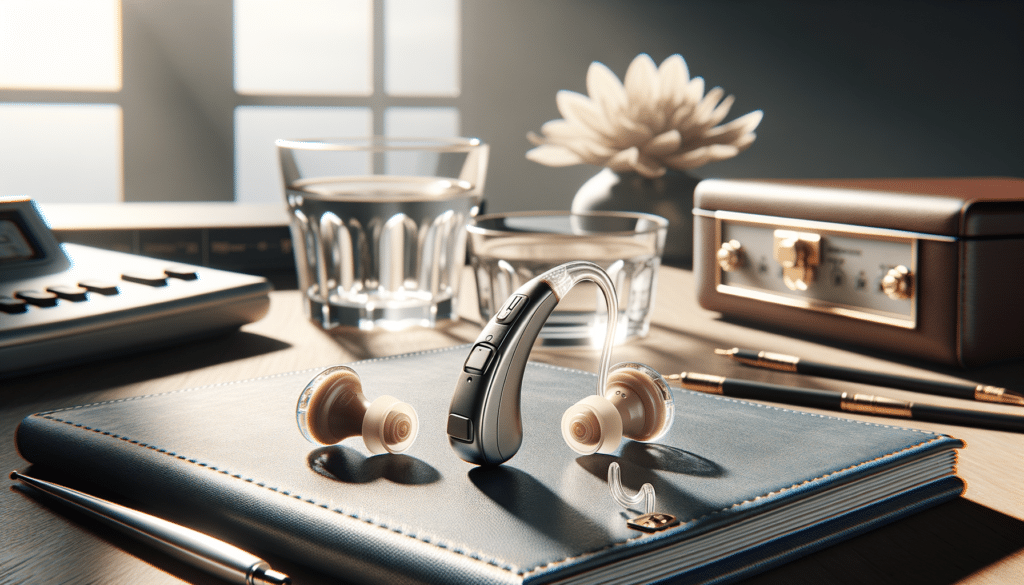Introduction to Hearing Aids for Seniors
Hearing loss is a prevalent issue among the elderly, impacting their ability to communicate and engage with the world around them. As we age, our auditory senses naturally decline, leading to challenges in daily interactions and a potential decrease in quality of life. Hearing aids have emerged as valuable tools in mitigating these challenges, offering seniors a chance to regain clarity and participate actively in conversations and social activities. Understanding the importance of hearing aids for seniors is crucial as it not only addresses auditory issues but also enhances overall well-being.
Types of Hearing Aids and Their Features
When considering hearing aids for seniors, it’s essential to recognize the variety of options available, each designed to cater to different levels of hearing loss and lifestyle needs. The most common types include:
- Behind-the-Ear (BTE): Known for their durability and ease of use, BTE hearing aids are suitable for a wide range of hearing loss levels. They are positioned behind the ear and connected to an earpiece inside the ear canal.
- In-the-Ear (ITE): These devices fit completely inside the outer ear, offering a more discreet option. They are ideal for mild to severe hearing loss.
- In-the-Canal (ITC) and Completely-in-the-Canal (CIC): These are smaller and less visible options, fitting partly or completely within the ear canal, suitable for mild to moderate hearing loss.
- Receiver-in-Canal (RIC): Combining the features of BTE and ITC, RIC hearing aids have a receiver that sits in the ear canal, offering a natural sound experience.
Each type of hearing aid comes with distinct features such as noise reduction, directional microphones, and Bluetooth connectivity, enhancing the user’s experience and adaptability to different environments. Choosing the right type involves considering the degree of hearing loss, lifestyle preferences, and budget.
Benefits of Hearing Aids for Seniors
Hearing aids offer numerous benefits beyond improved hearing, significantly impacting the lives of seniors. Some of the key advantages include:
- Enhanced Communication: By amplifying sounds, hearing aids enable clearer communication, reducing misunderstandings and frustration during conversations.
- Improved Mental Health: Hearing loss can lead to social isolation and depression. With hearing aids, seniors can participate more actively in social activities, boosting their mental health and reducing feelings of loneliness.
- Increased Safety: Being able to hear alarms, sirens, and other warning signals is crucial for personal safety. Hearing aids help seniors stay alert to their surroundings.
- Better Cognitive Function: Studies suggest that hearing aids may slow cognitive decline by stimulating the brain through improved auditory input.
These benefits collectively contribute to a higher quality of life, making hearing aids an essential investment for many seniors.
Challenges and Considerations in Choosing Hearing Aids
Selecting the right hearing aid involves navigating several challenges and considerations. Seniors and their caregivers should be aware of the following factors:
- Cost: Hearing aids can be a significant financial investment. It’s important to explore insurance options and potential financial assistance programs.
- Comfort and Fit: Ensuring a comfortable fit is crucial for consistent use. Ill-fitting devices can cause discomfort or even pain, discouraging regular use.
- Maintenance and Care: Regular maintenance is necessary to keep hearing aids functioning optimally. This includes cleaning, battery replacement, and occasional professional adjustments.
- Technological Adaptability: Some seniors may find it challenging to adapt to new technology. Support and training can ease this transition, ensuring effective use of the devices.
Considering these factors can help in making an informed decision, ensuring that the chosen hearing aid meets the specific needs and preferences of the user.
Conclusion: Enhancing Life Quality through Hearing Aids
In conclusion, hearing aids play a pivotal role in improving the quality of life for seniors experiencing hearing loss. By facilitating better communication, enhancing mental health, and ensuring safety, these devices empower seniors to lead more fulfilling and independent lives. The journey to selecting the right hearing aid involves understanding the types available, evaluating the benefits, and addressing potential challenges. With the right information and support, seniors can navigate this process effectively, unlocking the full potential of their auditory senses and embracing a more connected existence.




